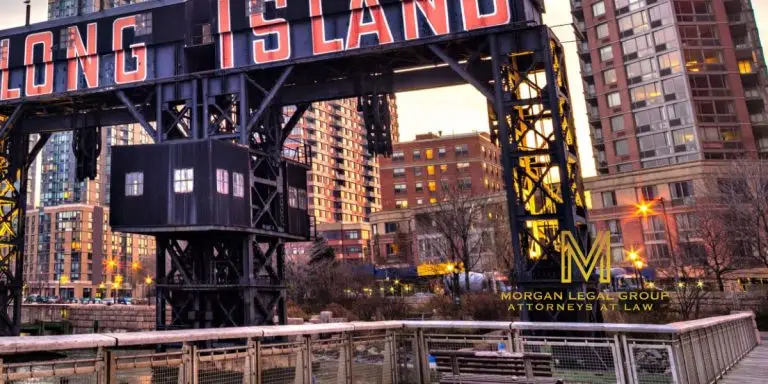Do You Need a Probate Attorney?
Dealing with the estate of a deceased loved one can be overwhelming. Navigating the probate process in New York can be particularly challenging due to the legal complexities involved. At Morgan Legal Group, located in New York City, we specialize in estate planning, probate, elder law, wills, and trusts. This article will help you determine whether you need to hire a probate attorney and the benefits of doing so.
Understanding the Probate Process
Probate is the legal process of administering a deceased person’s estate, ensuring their assets are distributed according to their will or state law. The process includes validating the will, appointing an executor or administrator, inventorying the estate, paying debts and taxes, and distributing the remaining assets to beneficiaries.
Key Steps in the Probate Process
Understanding the key steps in the probate process can help you decide whether you need professional assistance:
- Filing the Petition: Submitting a petition to the Surrogate’s Court to open probate and appoint an executor or administrator.
- Notifying Heirs and Beneficiaries: Informing all interested parties of the probate proceedings.
- Validating the Will: Proving the authenticity of the will in court.
- Inventorying the Estate: Listing all assets and their values.
- Paying Debts and Taxes: Settling any outstanding debts and taxes owed by the estate.
- Distributing Assets: Distributing the remaining assets to beneficiaries according to the will or state law.
- Closing the Estate: Filing a petition to close the estate once all tasks are completed.
When to Consider Hiring a Probate Attorney
While it is possible to handle probate without an attorney, there are several scenarios where hiring a probate attorney is highly beneficial:
Complex Estates
If the estate involves significant assets, multiple properties, business interests, or complex investments, a probate attorney can help manage these complexities efficiently. They can ensure that all assets are accurately valued and properly distributed.
Disputes Among Heirs
Probate can sometimes lead to disputes among heirs or beneficiaries. If you anticipate conflicts or if disputes have already arisen, a probate attorney can mediate and resolve these issues, ensuring that the process moves forward smoothly.
Contested Wills
If there is a challenge to the validity of the will, such as claims of undue influence, fraud, or lack of capacity, a probate attorney can provide the necessary legal expertise to defend the will and navigate the court proceedings.
Debt and Tax Issues
Dealing with the deceased’s debts and potential estate taxes can be complicated. A probate attorney can help identify valid claims, negotiate with creditors, and develop strategies to minimize tax liabilities, protecting the estate’s value for the beneficiaries.
Legal and Procedural Compliance
Probate involves numerous legal requirements and deadlines. An attorney can ensure that all filings are completed accurately and on time, avoiding potential delays and penalties. Their knowledge of New York State probate laws is invaluable in navigating the process efficiently.
Benefits of Hiring a Probate Attorney
Hiring a probate attorney offers several significant benefits:
Expert Guidance
A probate attorney provides expert guidance through every step of the process, ensuring that you understand your responsibilities and making informed decisions. Their experience with similar cases can help anticipate and resolve potential issues before they escalate.
Efficiency
With their knowledge of probate law and procedures, a probate attorney can expedite the process, reducing the time and effort required to administer the estate. This allows you to focus on grieving and supporting your family.
Reducing Stress
Probate can be emotionally draining, especially while dealing with the loss of a loved one. A probate attorney handles the legal complexities, reducing your stress and ensuring that the process is handled professionally.
Protecting Your Interests
Whether you are an executor, administrator, or beneficiary, a probate attorney protects your interests throughout the process. They ensure that the estate is managed and distributed according to the law and the deceased’s wishes.
How to Choose the Right Probate Attorney
Choosing the right probate attorney is crucial for a smooth probate process. Consider the following factors when making your decision:
Experience and Expertise
Look for an attorney with extensive experience in probate law and a track record of handling similar cases. Their expertise will be invaluable in navigating complex situations and ensuring a successful outcome.
Reputation
Research the attorney’s reputation through client reviews, testimonials, and professional associations. A reputable attorney with positive feedback from past clients is more likely to provide excellent service.
Communication
Effective communication is essential for a successful attorney-client relationship. Choose an attorney who is responsive, listens to your concerns, and provides clear explanations of the probate process and your options.
Fees and Billing Practices
Understand the attorney’s fees and billing practices before hiring them. Ask for a detailed breakdown of costs and ensure that you are comfortable with their fee structure, whether it’s hourly, flat fee, or a percentage of the estate.
Conclusion
Deciding whether to hire a probate attorney depends on the complexity of the estate, potential disputes, and your comfort level with handling legal matters. At Morgan Legal Group, we provide expert probate services to help you navigate the process efficiently and with minimal stress. Contact us today to schedule a consultation and learn more about how we can assist you with your probate needs in New York.
Frequently Asked Questions
What is the role of a probate attorney?
A probate attorney assists with administering a deceased person’s estate, ensuring legal compliance, managing assets, paying debts and taxes, and distributing the remaining assets to beneficiaries.
How long does the probate process take in New York?
The duration of the probate process varies depending on the estate’s complexity, but it typically takes several months to over a year to complete.
Can probate be avoided?
There are estate planning strategies to avoid probate, such as setting up trusts, joint ownership, and designating beneficiaries on accounts. Consult with an estate planning attorney to explore your options.
What happens if someone contests the will?
If a will is contested, the court will hold a hearing to determine its validity. A probate attorney can provide legal representation and defend the will against challenges.







